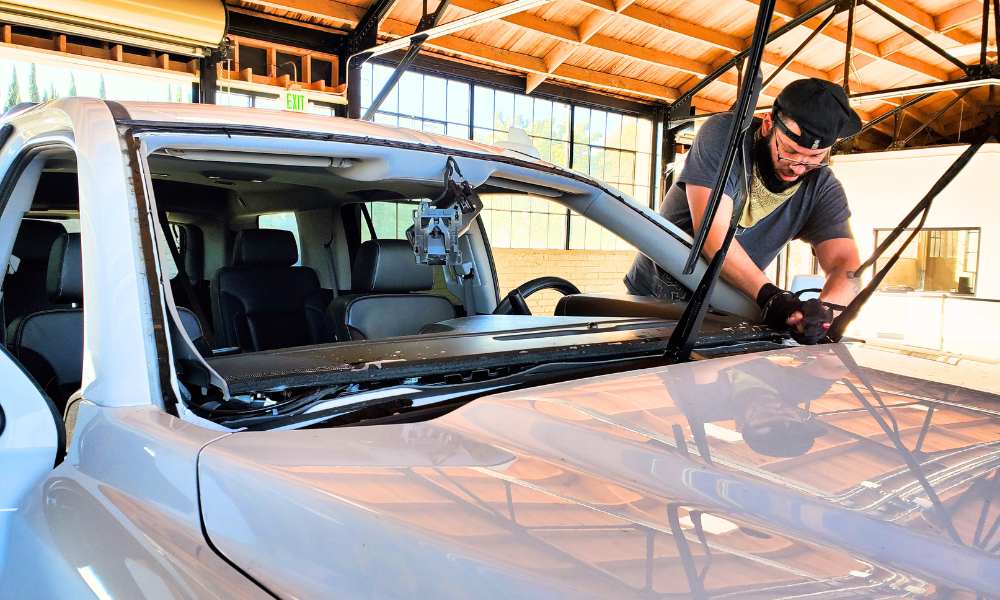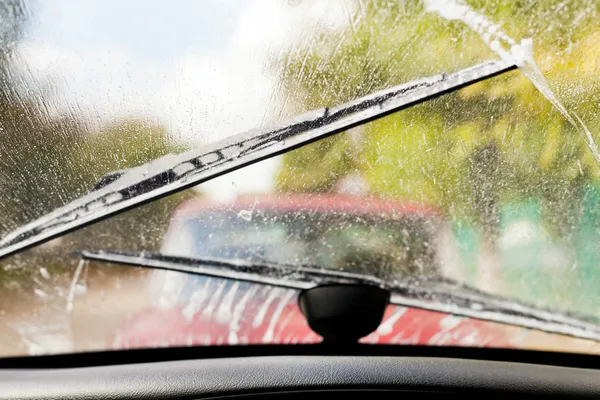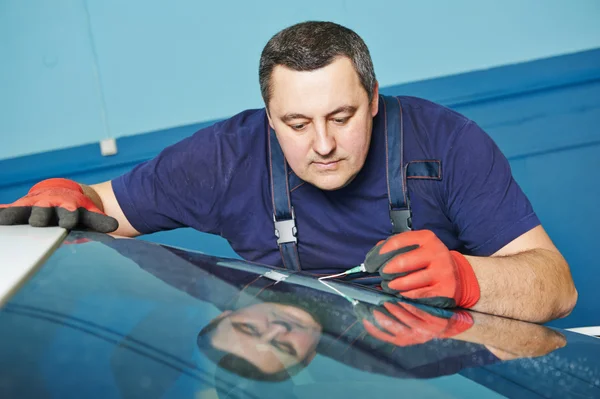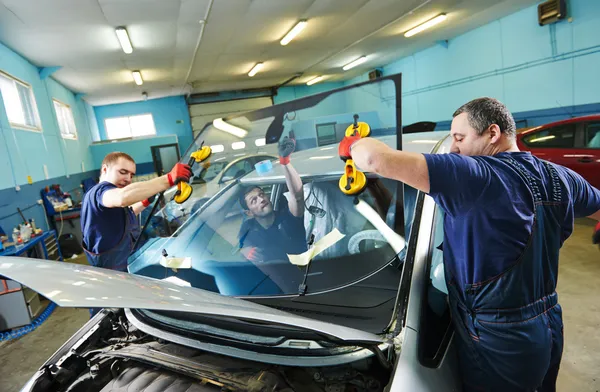A Guide to Windshield Maintenance – Tips to Keep Your...
How to Identify Car Window Back Glass Defects?

If you have a car that’s older than five years, chances are that the back glass has come loose at some point. Even if it hasn’t yet, the windows can still break very easily if they aren’t properly secured. The problem is that most people don’t know how to identify this defect or why it occurs. In this article, we’ll go over some of the most common causes of window glass defects and what you can do about them!
Inspect your car's back glass for cracks.
Inspect the back glass of your car for cracks or chips. You can do this by looking at the window from inside the vehicle, but it’s best to use a flashlight to see any imperfections.
Look at the glass from different angles and times of day; cracks may become more visible at certain times of day and in certain lights.
Look for rust around the edges.
Rust is a sign of damage and can be caused by a number of things. Most often, it’s due to water or air exposure. Rust also may be caused by age and dirt over time. Corrosion—the process where metals corrode—is another likely culprit. Damage from other objects hitting your car window back glass is also possible; this would cause cracks in the glass that are visible when viewed from behind your vehicle’s rearview mirror (if you’re lucky).
Check for silicone residue or sealant breakage.
The first thing you should look for is silicone residue or sealant breakage. This can be found on the edge of the glass, which is where it will come in contact with any moisture that seeps through your vehicle’s interior. If there are any cracks or abrasions in this area, you’ll see that they have become larger over time due to moisture buildup inside your car.
The silicone used as a sealant also has another problem: it can become hard over time due to exposure to sunlight and heat from inside your vehicle’s cabin. If you want to clean up these areas properly without damaging them further (and possibly causing damage), use rubbing alcohol instead!
Look for excessive dirt and debris between the panes of glass.
Clean the glass. To remove dirt and debris, use a soft cloth with warm water or a microfiber cloth to clean the window glass. Don’t use paper towels or newspapers that contain chemicals that could damage your car’s interior components.
Inspect for cracks in the glass panes. If you see cracks in any of your car’s windows, it’s important to repair them as soon as possible so they don’t lead to more serious problems down the line (such as having them break altogether).
Look for moisture inside the windows.
Look for moisture in the corners of your windows, both on the inside and outside. If you can see moisture on the window frame, it’s time to replace them!
If you’re not sure if there’s enough moisture inside your car right now but want to be sure that you know what causes it—and how to prevent it from happening again—you should look at each pane individually. You may find one or two spots where a few drops have seeped through from somewhere else in your car (like a crack around an overhead light), but if these are isolated spots and don’t spread across multiple panes or over large areas like this one does, then your window isn’t likely affected by any serious problems yet.
Check your window glass regularly to make sure it is safe to drive with it.
The first step to identifying a car window back glass defect is to check your window glass regularly. If you notice any cracks or chips in the glass, get it repaired as soon as possible. If you can’t afford this right away, avoid driving with it until you can afford repairs.
If there are no cracks or chips on your windshield, but something looks amiss with how the glass sits against the door frame (for example a gap between where they meet), then this could be an indication of serious damage and possibly even safety issues!
Conclusion
The best way to check your car’s glass is to bring it into a certified auto repair center with a trained mechanic. This will allow them to inspect the glass for any possible cracks or defects and give you an honest assessment of how safe it is for you to drive with those issues. If your back window is completely broken, then the best thing to do maybe find another car which has been cared for properly in order for it not only looks good but also performs well too!
Popular Searches
Audi Windshield Replacement in Santa Clara County
Auto Car Window Tinting in Santa Clara County
Auto Glass Repair and Replacement in Santa Clara County
Auto Glass Repair in Santa Clara County
BMW Windshield Chip Repair in Santa Clara County
BMW Windshield Repair and Replacement Services in Santa Clara County
Car Window Repair in santa clara
Car Window Repair in Santa Clara County
Commercial truck windshield replacement
Dodge Windshield Repair and Replacement Services in Santa Clara County
Dodge Windshield Replacement in Santa Clara County
Glass repairs for cars near me
Honda pilot windshield replacement cost
Honda Windshield Repair and Replacement Services in Santa Clara County
Honda Windshield Replacement in Santa Clara County
Hyundai Tucson windshield replacement
Hyundai Windshield Repair and Replacement Services in Santa Clara County
Hyundai Windshield Replacement in Santa Clara County
Jeep Windshield Repair and Replacement Services in Santa Clara County
Jeep Wrangler Windshield Replacement in Santa Clara County
Kia Windshield Repair and Replacement Services in Santa Clara County
Kia Windshield Replacement in Santa Clara County
Mobile Auto Glass in Santa Clara County
Mobile Auto Glass Repair in Santa Clara County
Mobile glass replacement near me
Same day windshield repair near me
Toyota Camry side mirror glass replacement
Windshield Calibration in Santa Clara County
Windshield Chip Repair in Santa Clara County
Windshield chip repair near me
Windshield Repair and Replacement Services in Santa Clara County
Windshield Repair and Replacement Services Near Me
Windshield Repair in Santa Clara County
Windshield repair service near me
Windshield Replacement Near Me
Windshield Replacement Services in Santa Clara County
Read more Articles
Why You Should Be Buying OEM Windshields?
Why You Should Be Buying OEM Windshields? There are some...



